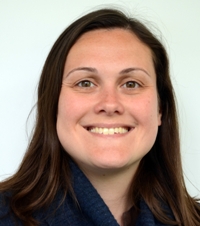Over the last year, amidst the rising tide of populist politics around the world, we have increasingly seen research and evidence dismissed as irrelevant, disconnected, or an unnecessary luxury. ‘Truth’, ‘experts’ and their advice are rejected in favour of media spin, emotional appeals or so-called self-evident ‘facts’ (or indeed lies, masquerading as ‘alternative facts’). This post-truth move requires a response that doesn’t just reassert the value of academic ivory towers. For the specific context of international development at least, we at IDS argue it requires ‘engaged excellence’.
What do we mean when we say engaged excellence? Isn’t it just another buzz phrase within development, and do we really need another buzz phrase? No it’s not, it is a call to transform the way in which we work. It is, an attempt to capture a way of doing research that is different and could be transformative. It is a phrase that describes research that is directly involved in the real world, not separate or abstract from it. Importantly, it implies that the high quality of our research (excellence) is dependent upon it linking to and involving those who are at the heart of the change we wish to see (engaged).
We have identified four pillars that underpin the concept of engaged excellence: high quality research; evidence that makes an impact; knowledge that is co-constructed with others; and enduring and mutually dependent partnerships. An important point is that these pillars are mutually dependent, they cannot exist in isolation from each other.
So, why does this matter, and what makes it potentially transformative? Well, I recommend reading our latest IDS Bulletin ‘Engaged Excellence’ – which not only answers these two questions, but also provides lots of real life examples of research that has tried to uphold the pillars of engaged excellence.
The different research projects outlined in the IDS Bulletin have worked in enduring and reciprocal partnerships with policy makers, activists, NGOs, local community members, farmers, and indigenous peoples, spanning the globe from Finland to Uganda.
They have challenged not just development undertaken in a knowledge vacuum, but also the colonial nature of much knowledge, and the domination of certain ways of knowing. They have acknowledged and valued emotions, indigenous knowledge, art and visual representations, and music as knowledge and evidence, and co-constructed this into meaningful research in a way that makes sense and is of value to those involved. They have pluralised ideas of expertise, and of who the experts are.
They have collaborated with diverse people, bringing together people who might not traditionally be involved in research, but who are at the heart of the change which we wish to see – whether that be a change of policy, a change in perceptions and social norms, a change in behaviour, or a shift in the way a particular issue is understood and dealt with. The involvement of those people has had an immediate impact on them, and changes have happened through the research process, not only as an outcome at the end.
This matters because we are not in research for the sake of creating knowledge alone, we wish to make a difference, to contribute to positive social change. And to do this, we need to be involved, we need to blur the lines between research and action. We need to understand what the realities are for people living every day in the contexts in which we do research. We need them to influence the research agendas we embark on, and to participate in that research.
But we also need to reflect on our own role in creating knowledge. We as researchers are in a privileged position where we can set research agendas, ask certain questions, involve certain people – we are gatekeepers for what counts as valid knowledge and evidence. We bring to our research our own biases and blind spots, and it is only through working with diverse people, especially those not usually involved in research, that we can be challenged on these biases and bind spots, that we can see the things we have missed or misunderstood. Then we can begin to co-construct an understanding of the world and the problems we seek to address from a more pluralistic perspective, and we can generate knowledge that is relevant and useful to those who would use it.
Finally, I would add that in these ‘post-truth’ days, we need to work doubly hard to make sure research and evidence are valued by those in power. One way to do this is through working in partnership with others, especially change makers and policy makers trying to influence specific agendas. We can’t sit in our ivory towers and observe the world around us, we need to get involved and involve others too. So no, engaged excellence isn’t just another buzz phrase, it is a call to transform the way in which we do research, and through doing so, transform the world.
